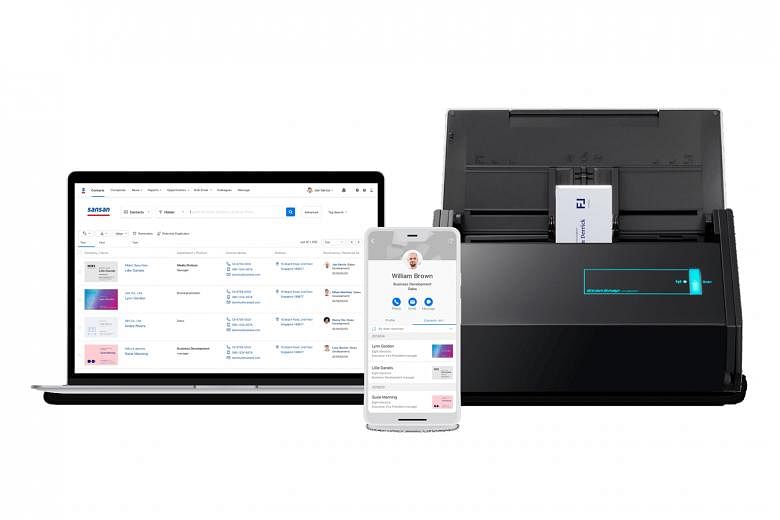Local cleaning equipment company SuperSteam was struggling to organise the contact information of potential clients and suppliers, especially after hosting exhibitions where it would receive stacks of business cards.
Hours were spent manually inputting the data.
But with help from Sansan, a Japanese contact management solutions firm, SuperSteam's business cards and contact information have been digitised, with the use of a scanner or a smartphone app.
The service also allowed SuperSteam's employees to share and access contacts through a centralised database, therefore improving the company's efficiency.
Now, Sansan is seeking to bring other companies on board its platform as it sets out to expand its operations in Singapore and the region.
Leading the charge is Mr Edward Senju, its regional chief executive, who was appointed on Tuesday.
He told The Straits Times that his focus will be on further reinforcing the company's new business strategy.
Last January, Sansan shifted its focus to corporate business and has successfully wooed more than 50 companies in Singapore and South-east Asia.
The change in approach was a departure from its initial strategy when it set up an office here in 2015.
Then, the company had relied on individuals to refer their colleagues to its mobile application-based business card storage platform.
But business was slow as people did not seem to understand the value of its services, Mr Senju said.
"We realised we needed to have a closer relationship with our customers," he added, and it prompted Sansan to replicate its Japanese business model in Singapore last year.
It will use Singapore as a springboard to other Asean countries, he said.
The company listed on the Tokyo Stock Exchange in June, but before its initial public offering, it had raised more than US$120 million (S$166 million).
For the fiscal year ending May 2019, Sansan's global net sales hit 2.86 billion yen (S$36.8 million), an almost 30 per cent increase over the previous financial year.
Mr Senju said the company's top target in Singapore is small and medium-sized enterprises (SMEs), rather than multinational corporations (MNCs). This is because SMEs are more agile in their decision-making processes, he said.
"Instead of going through a very long sales period (as with MNCs), we want to face many customers... and get a good sight of each of them."
Mr Senju believes the humble business card, a traditional tool of contact building, will continue to retain its value.
Sansan's average customer attrition rate in the last two years is below 1 per cent, a testament to the value companies see in its service.


